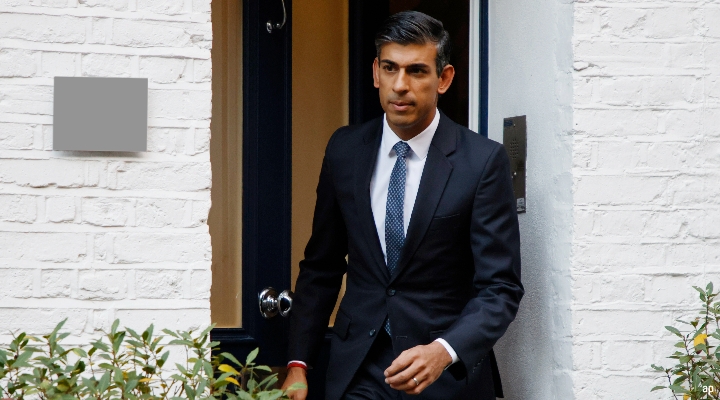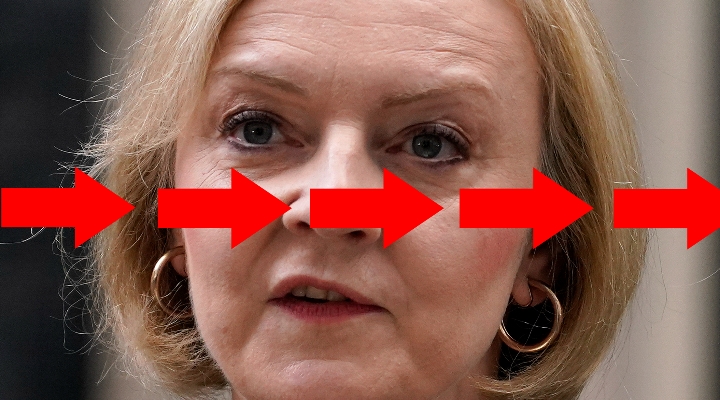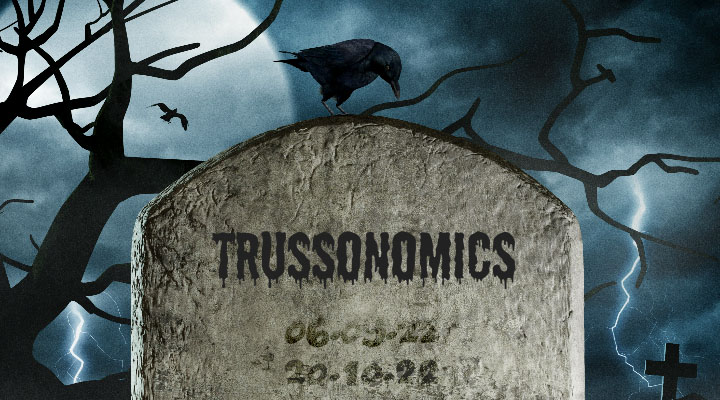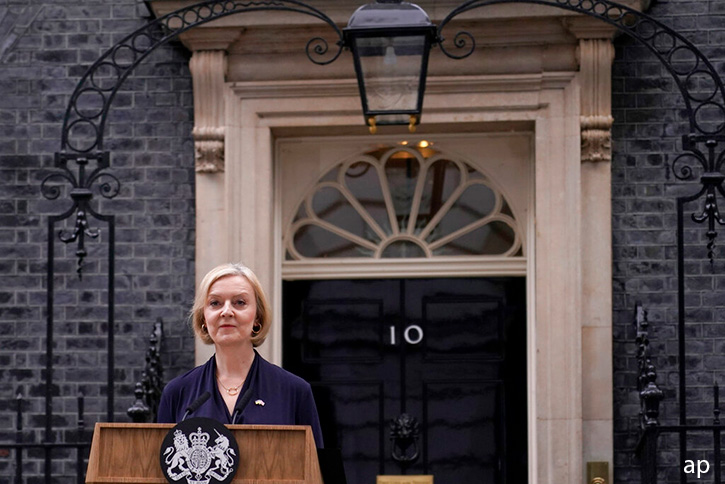
Rishi Sunak will now get the keys to Downing Street on his second attempt after rivals Boris Johnson and Penny Mordaunt withdrew from the race.
Mordaunt's team had insisted earlier today it had the numbers to enter the ballot, but at the last minute the former defence secretary withdrew, handing the leadership contest to her only-remaining rival. Commentators now await a meeting between Liz Truss and the king.
"These are unprecedented times. Despite the compressed timetable for the leadership contest it is clear that colleagues feel we need certainty today. They have taken this decision in good faith for the good of the country," Mordaunt said in a statement.
"Members should know that this proposition has been fairly and thoroughly tested by the agreed 1922 process. As a result, we have now chosen our next prime minister. This decision is an historic one and shows, once again, the diversity and talent of our party. Rishi has my full support."
Despite this pending clarity, it is not yet clear where Sunak stands on economic matters, or whether indeed he will keep Jeremy Hunt as his chancellor. Himself a former chancellor, Sunak has given no interviews or statements to the press since the prospect of him becoming prime minister looked like a serious possibility over the weekend.
During the summer leadership campaign, Sunak made a strong commitment to holding off on tax cuts until inflation was under control, to the dismay of Party members, who have repeatedly criticised him for placing the UK in its highest tax environment in peacetime history. He has also previously warned against "irresponsible government borrowing."
Rishi Sunak has been tight-lipped on policy in the past few days, and has given no interviews to the press. He had told Conservative Party members during his Summer campaign for the leadership that he wanted to hold off on tax cuts until inflation was under control. Supporters see that view as having been vindicated by events under Liz Truss.
This morning gilt yields – currently watched keenly by political commentators as a litmus test of confidence in UK PLC – fell sharply on signs that Sunak was set to take the top job.
This afternoon UK equity markets also rose on the news that Sunak would be the next prime minister. The FTSE 100 is now trading above the 7,000 mark at 7,018.
"Markets have signalled Rishi Sunak will be given time to deliver, with gilt yields falling and the British economy getting a tentative second chance to get back on track," AJ Bell financial analyst Dani Hewson said.
"But there’s no getting away from the scale of the challenge that faces the new prime minister. The last few weeks have left the UK economy badly bruised, and the volatility of the pound today lays bare the huge task ahead."
Sunak's Track Record
While we await further details about the new prime minister's economic plans, we have some idea of his back story because he was chancellor for more than two years until July 2022. His most recent policy announcement in that role was to bring in a windfall tax for oil and gas companies, a policy that is likely to be widened to other sectors such as banking. He also revealed help for the cost of living crisis, with payments to those on low incomes, pensioners and those on disability benefits.
At the time he warned of the dangers of tax cutting in these difficult economic times:
“Excessively adding fiscal stimulus into a supply constrained economy … risks being counterproductive and increasing inflationary pressures.”
Liz Truss and Kwasi Kwarteng learned the hard way what the bond and currency markets thought of their version of fiscal stimulus, as explained in our obituary to Trussonomics.





























